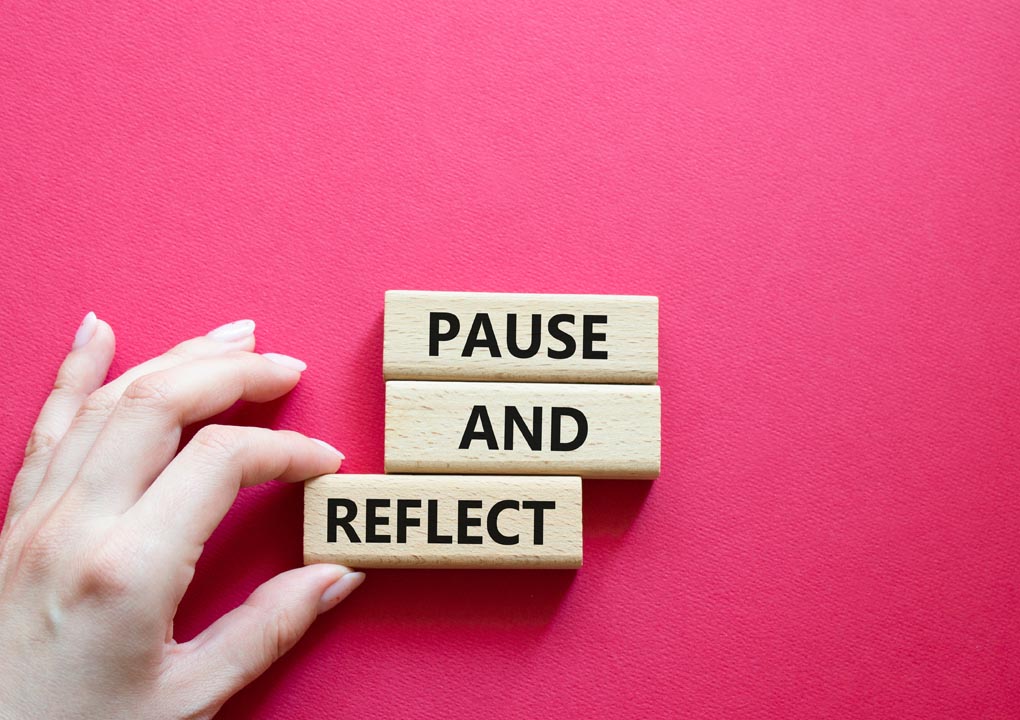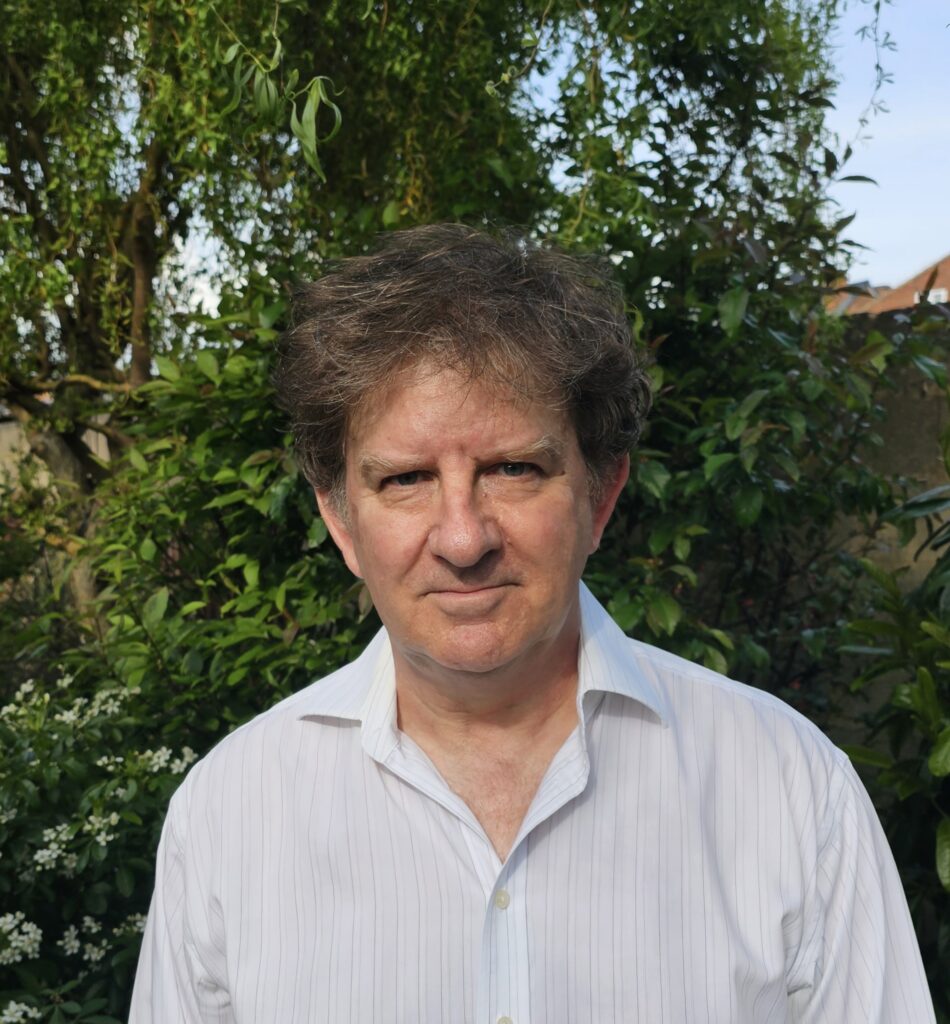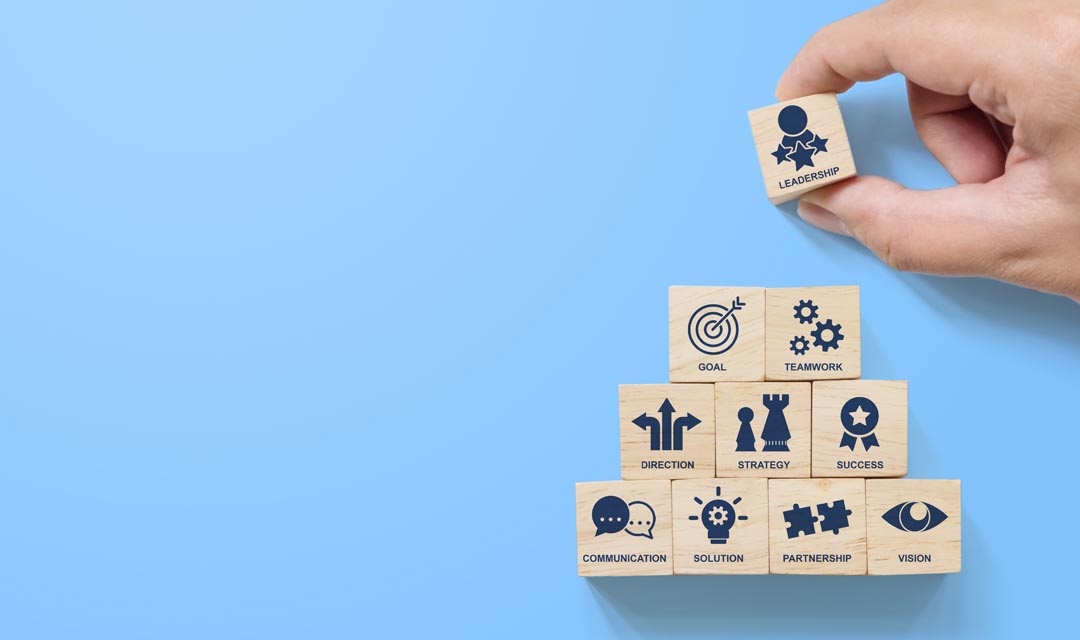We all know about reflecting back on something – but how many of us do so going forwards? This blog from Andrew Gibbons is here to shine a light
Think for a moment about the word ‘reflection’. Doesn’t it imply thinking back? Hasn’t the word become, inappropriately, associated with retrospection and reviewing past events?
Reflection must be seen to be a legitimate, purposeful, valuable activity
My preferred definition of ‘reflection’ is “serious thinking or careful consideration”. I like this because there is emphasis on serious – not a fleeting thought that is then lost, but careful consideration that is more likely to be retained, and most critically, applied.
Within this short piece I suggest making the most of the significant value true reflection can bring by the conscious use of three distinct and complementary methods: Reflecting forward, before action; reflecting in action, and reflecting back, after action.
Reflecting forward
We can’t change what has happened, we can however, influence what has yet to occur, and plan to make the best use of events that need not take us by surprise.
The more ready we are to exploit the learning value from real experiences the greater will be the potential outcomes that are subsequently applied. Time invested in serious consideration in advance of learning-rich events can be repaid many times over in terms of what is gained, and not, as is so often the case lost due entirely to insufficient planned reflection.
Not all events and real-life experiences can be anticipated, but many can. Many of our workplace activities are planned and structured – so too should be our reflection before these.
Reflection in all three modes, and especially before action, must be seen by ourselves in particular, and also those with a claim on our time to be a legitimate, purposeful, valuable activity. The last word bears emphasis, effective reflection is an active process, not a passive one, and should always be a catalyst for more effective outcomes.
Being ready is the result of forward reflection. That reflection may focus on previous similar experiences; the learning from those past events; developing clarity of intended outcomes; your own past behaviour, and what you expect to see from others.
Reflecting in the moment
This form of reflection is the toughest. There is often a lot going on, meaning time for conscious, deliberate reflection can be hard to find. Getting the outcome sought is usually a higher priority than ‘live’ reflection on what you are learning.
This is when you see the value of reflecting forward, to capture and retain more than scraps, seeing and at best noting the learning, not all of which could have been anticipated.
The more ready you are for learning in action the more you will take from this, and, importantly, the more accurate and vivid will be the review that follows. Be prepared to consciously, deliberately reflect, even, or especially in the midst of the noise and confusion that typifies too much ‘work’. Not speaking helps, as talking leaves little brain-space for high quality thinking.
It may be a good idea at an opportune moment to call a break to process your thoughts and to recall your good intentions when reflecting forward. Even making known by what you say that you need even a few seconds to think before a response can give you the space to think more clearly and achieve a better outcome.
Reflecting back
Perhaps the most natural and familiar, reflecting back is also the form of reflection that has the least influence on past events, although it can be rich in retrospective learning value.
Yes what’s happened is past, and beyond our means to change, but, we can still enhance the retained and applied value through the honesty, care and serious consideration of our backward reflection.
To get the most from reflecting back this must be a deliberate, conscious activity, given the time it needs, and focused upon to the exclusion of all other distractions. This should not be a few thoughts in the midst of other tasks, it has to be concentrated upon to get results. Thus our ability to revisit sometimes less than positive experiences, which are often those with most learning value, could be the key to making these true learning opportunities.
Immediate post-experience review has its place, so too a more considered, objective reflection a little beyond. Don’t waste the effort, note your learning to keep a record – otherwise this will be lost. An analogy from driving might help: you have a small mirror to glance backwards and a much bigger space to look ahead. Reflect on how best to make the most of the future, particularly the foreseeable.
The value of reflection
I believe reflection is undervalued. For me the evidence of 42 years of workplace observation leads me to conclude that activity is rewarded over productivity. Being seen to be thinking, drawing the best possible learning value from an experience past, current or present is seen by too many, as ‘not real work’. If the observation was of frantic typing or attendance at a meeting, well that’s okay – it looks like you’re actually doing something.
How we reflect is another key issue. Personally I have found capturing thoughts in written form has worked for me, and more recently I have found immense value from conversational reflection with a partner that, helps me in 30 minutes through structured discussion to extract the most from genuine reflection.
The only behaviour we can change is our own, and I encourage you to reflect on what you have read and decide what value there is to make better use of at least one of the three forms of reflection.





